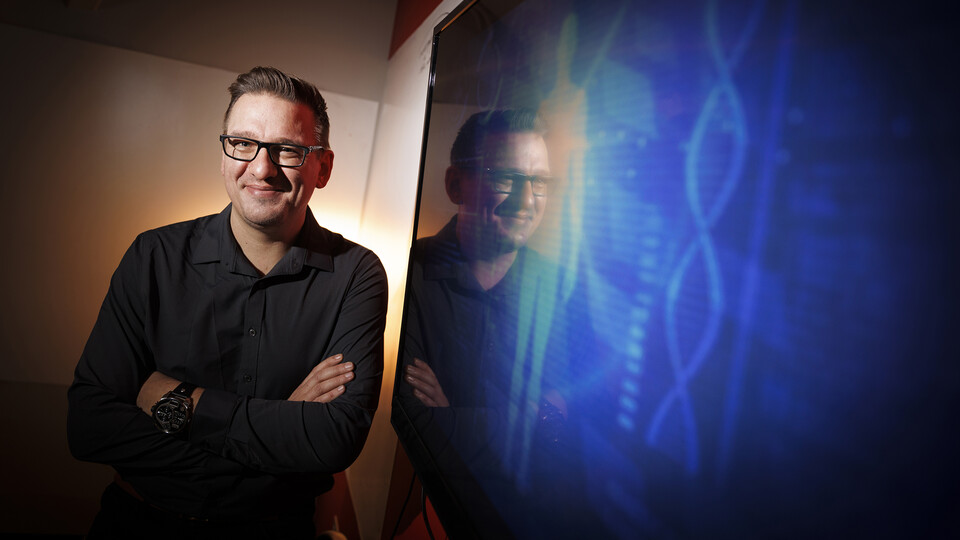
by Deann Gayman | University Communication and Marketing
Digital twins are simulatable replicas of real-world systems and have been employed by many industries that work with complex data, such as manufacturing, but never for any of the intricate systems of the human body.
Tomas Helikar, associate professor of biochemistry and leader of the Cell Collective grant, aims to change that, and has earned a Grand Challenges Catalyst award for his ongoing work to build out a digital twin of the human immune system.
Like all digital twins, which are computational models that can identify and prevent issues prior to implementing significant changes to an existing real-world operation, Helikar’s digital twin of the human immune system aims to predict responses to pathogens and treatments to immune-related diseases, and will be instrumental in understanding disease processes and for developing life-saving drugs and preventative medicine. The project is deeply personal, too, as Helikar’s son is immune-compromised due to a lung transplant he underwent as an infant.
“In many ways, we’re playing a game of whack-a-mole (with his treatment) because when you start looking at the relationships and connections between these different cells in the immune system, there are feedback mechanisms that affect other parts of the system,” Helikar said. “I’m hoping that we’ll be able to control the immune system in a safer and more predictable fashion.”
It is a lofty goal, but Helikar has made crucial strides in the last few years, including attaining ongoing funding from the National Institutes of Health in February, and in May, publishing a “roadmap” for building out the digital twin immune system in Nature Digital Medicine.
The five-year, $5,039,652 Grand Challenges Catalyst Award will establish the Digital Twin Innovation Hub, which will broaden the team and disciplinary expertise working on the project. Helikar is the principal investigator, and is joined by co-investigators Lindsey Crawford, assistant professor of biochemistry; Bhanwar Lal Puniya, research assistant professor in biochemistry; and Hongfen Yu, associate professor and director of the Holland Computing Center. Sara Aghamiri, computational modeling engineer in biochemistry, will serve as manager of strategic partnerships.
Helikar sat down with Nebraska Today to talk about the project, how the Catalyst Award will shape its future, and the future of medicine with digital twins.
Read more:
https://news.unl.edu/newsrooms/today/article/with-catalyst-award-helikar-sets-five-year-goal-for-draft-of-digital-immune/